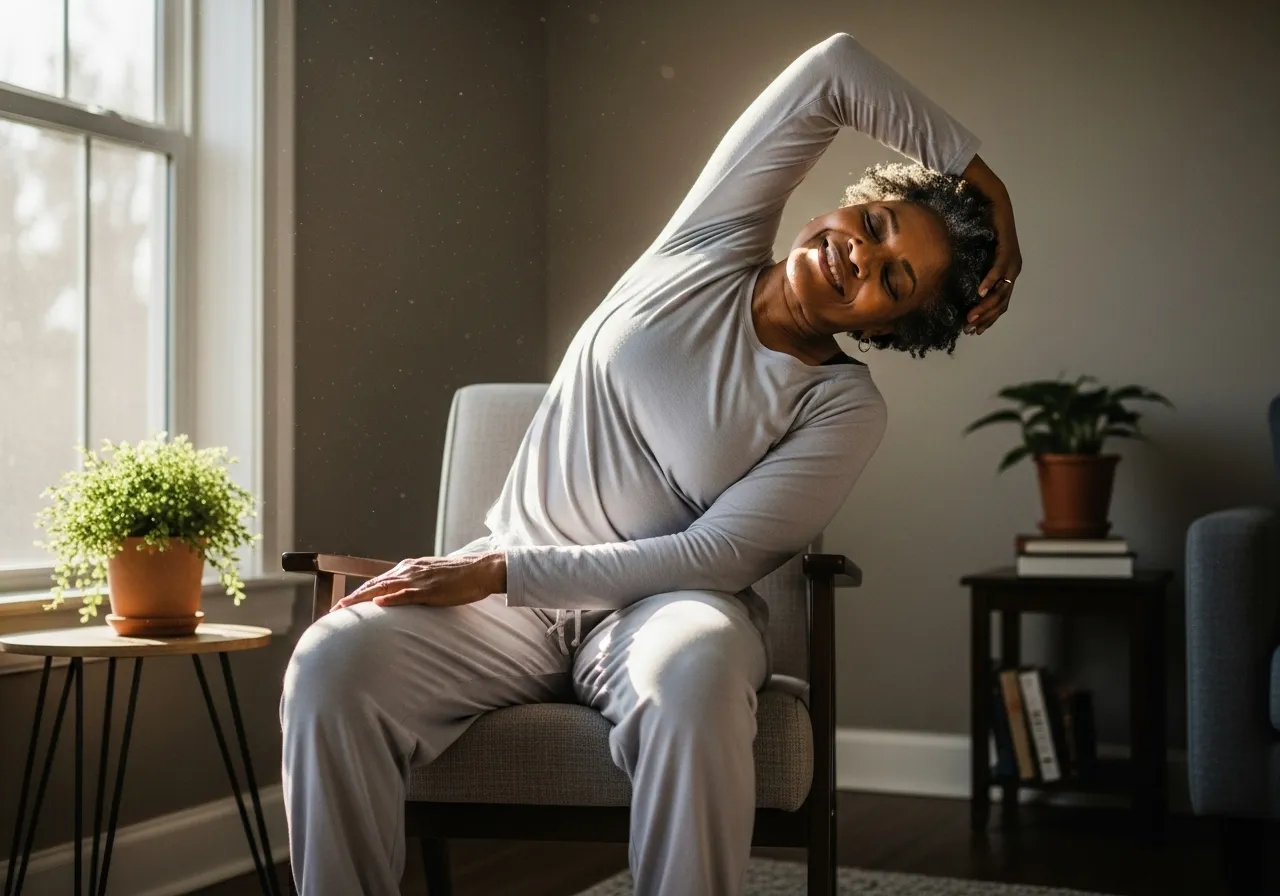
Practical Self-Care Strategies You Can Start Today
Building a foundation of mental well-being involves small, consistent daily practices. These are not cures, but they are powerful tools that support your emotional resilience and create a buffer against stress. Choose one that feels manageable and begin there.
Gentle Movement
You don’t need to run a marathon to reap the mental health benefits of exercise. The goal is gentle, consistent movement. Physical activity releases endorphins, which are natural mood elevators, and it can reduce stress hormones. Consider trying:
A daily walk: Start with just 10 minutes. Walk outside if possible, as exposure to natural light also helps regulate your sleep-wake cycle and can boost mood.
Chair yoga: There are countless free videos online designed for seniors that guide you through gentle stretches and poses you can do while seated, improving flexibility and calm.
Stretching: Simply taking 5 minutes in the morning to gently stretch your arms, legs, and back can relieve physical tension and start your day with mindful movement.
Social Connection
Loneliness is toxic to mental health. Intentionally nurturing your social connections is a powerful act of self-care. It’s about quality, not quantity.
Schedule a call: Don’t wait for the phone to ring. Pick one person—a friend, a grandchild, a neighbor—and schedule a short phone or video call each week.
Join a group: Local libraries, community centers, and places of worship often have book clubs, walking groups, or volunteer opportunities. Finding a shared interest is a wonderful way to meet new people.
A simple “hello”: Even small moments of connection matter. Make eye contact and say hello to the mail carrier or the cashier at the grocery store. These brief interactions remind us that we are part of a community.
Mindfulness and Purpose
Finding a sense of purpose is a key ingredient of well-being at any age. It doesn’t have to be a grand gesture. Purpose can be found in small, daily activities.
Engage a hobby: Reconnect with something you used to love or try something new. It could be knitting, woodworking, puzzles, or listening to music. The act of engaging in a focused, enjoyable activity is a form of mindfulness.
Simple mindfulness: You don’t need to meditate for an hour. Try a one-minute mindfulness exercise. While drinking your morning coffee or tea, focus all your attention on the experience—the warmth of the mug, the aroma, the taste. When your mind wanders, gently bring it back. This simple practice trains your brain to focus on the present.













